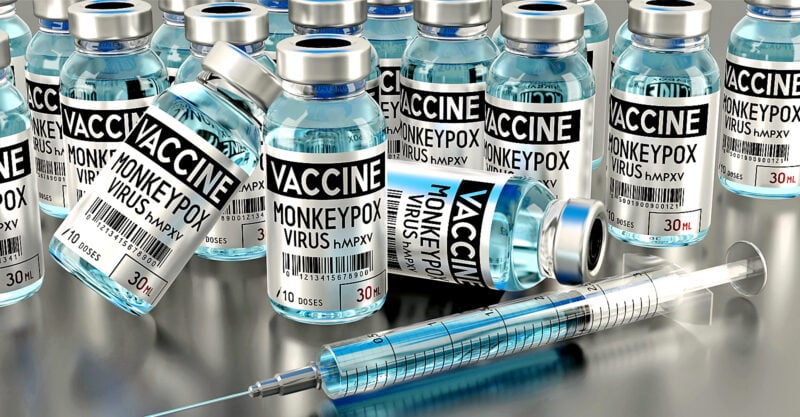By Iyemah David
The Africa Centres for Disease Control and Prevention (Africa CDC) is in discussion with Bavarian Nordic on transfer of technology to enable African manufacturers produce Mpox vaccines.
Dr Jean Kaseya, Director-General of Africa CDC, made the announcement during the weekly Mpox media briefing on Tuesday.
Bavarian Nordic is the sole global producer of Mpox vaccine.
Kaseya expressed gratitude to the company for agreeing to the technology transfer, which would allow Africa to manufacture its own vaccines.
He explained that Africa CDC aimed to have 10 million doses available by the end of 2025, adding that Bavarian Nordic had given assurance that the target was achievable.
He, however, said that while this represented a longer-term solution to the Mpox outbreak affecting 12 African countries, more immediate measures were needed.
He highlighted the need for donations from wealthier countries to address the crisis in the short term, referring to it as an “emergency humanitarian era.”
He also commended the European Union (EU) for procuring 215,000 vaccine doses for the continent.
“In the past week alone, Africa has seen an increase of 1,405 Mpox cases, bringing the official total to 18,910.
“The biggest increase was in the Democratic Republic of Congo (DRC), the epicentre of the outbreak, which now has 17,794 cases, an increase of 1,030.
“However, armed conflict in eastern DRC is hampering efforts to curb the outbreak,” he said.
According to him, surveillance retains suboptimal in some countries.
“Other countries, including Burundi, the Central African Republic, and Nigeria, have also seen an uptick in cases.
“Burundi’s cases jumped from 265 to 572, while the Central African Republic’s cases increased from 206 to 263, and Nigeria’s from 24 to 39.
“No new cases were recorded in Cameroon, Congo, Kenya, Rwanda, Uganda, South Africa, Côte d’Ivoire, or Liberia. The total number of recorded deaths stands at 541,” he said.
Kaseya said that the Africa CDC, WHO and UNICEF have united to form a single African Incident Management Team to address the outbreak, which had been declared a Public Health Emergency of International Concern (PHEIC).
Prof. Jean-Jacques Muyembe, Director General of the Democratic Republic of the Congo Institute for National Research and Biomedical (INRB), explained the need for better communication to prevent the spread of Mpox.
Muyembe called for children to be warned against touching dead animals or consuming bush meat.
He also reported a recent trial of the antiviral medicine, tecovirimat, for treating Mpox.
“Tecovirimat did not reduce the duration of Mpox lesions in children and adults with Clade I Mpox in the DRC.
“But the trial showed a 1.7 per cent mortality rate, significantly lower than the 3.6 per cent mortality rate typically observed in the DRC.
“This mortality rate applied to all trial subjects, regardless of whether they received tecovirimat or a placebo, suggesting that hospitalisation and high-quality supportive care improved outcomes,” he said.
Mpox, formerly known as monkeypox, is a viral disease caused by the monkeypox virus.
It is similar to smallpox but generally less severe. Mpox is characterised by symptoms such as fever, rash, and swollen lymph nodes.
The disease can spread from animals to humans and between humans through close contact, respiratory droplets, and contaminated objects.
The WHO and other health bodies renamed monkeypox “Mpox” in 2022 to reduce the stigma and discrimination associated with the original name.




